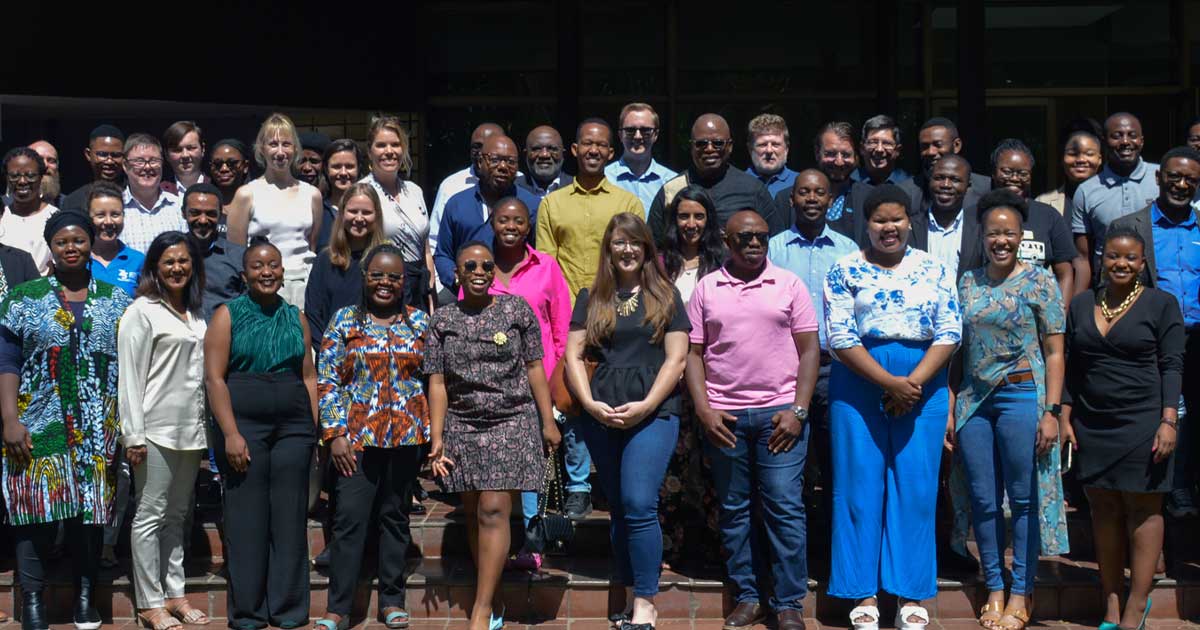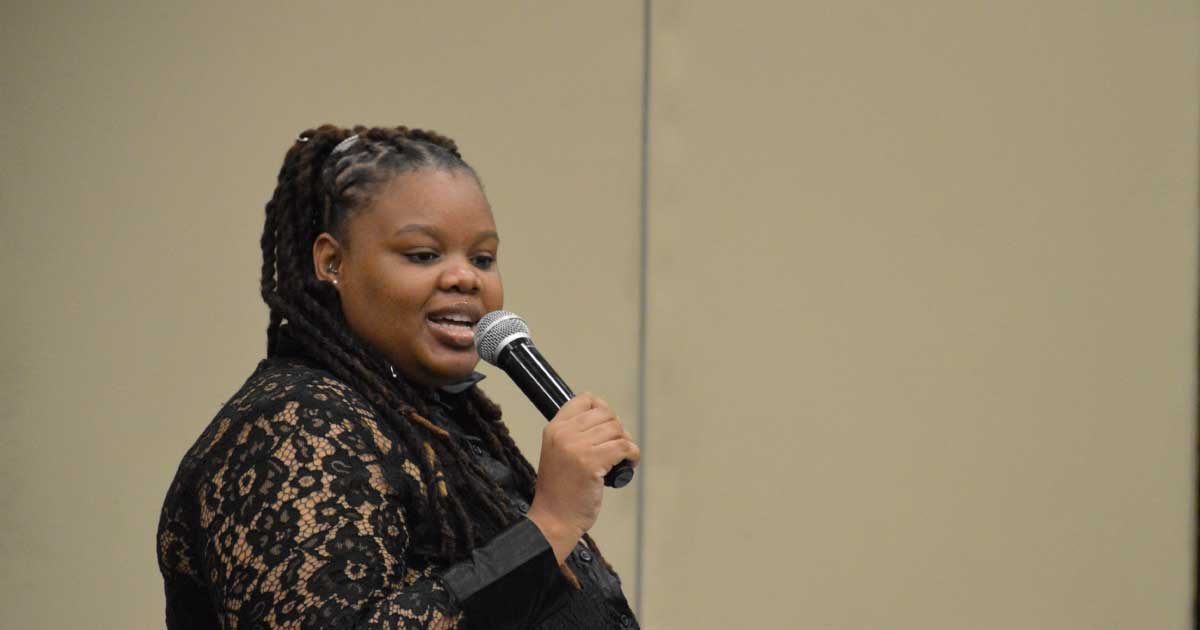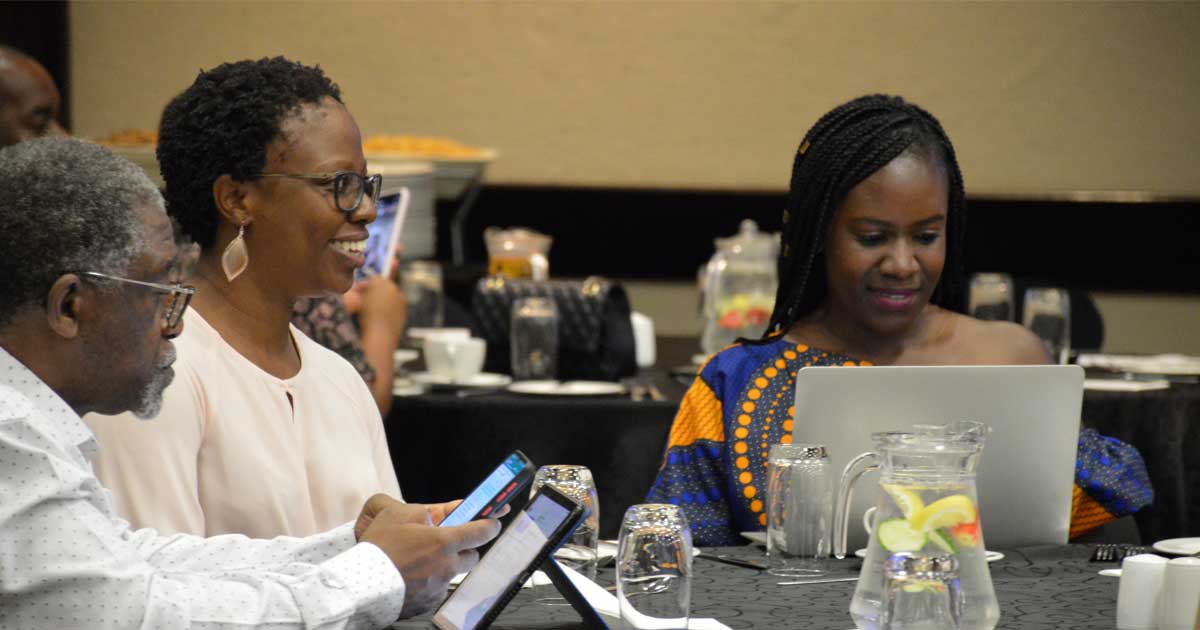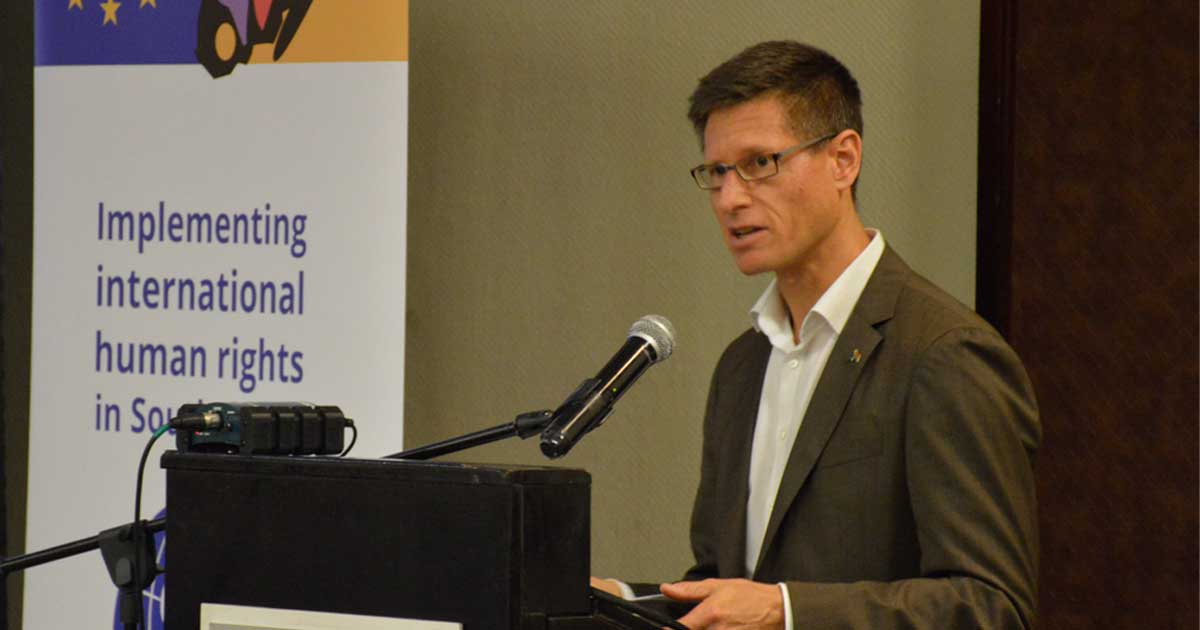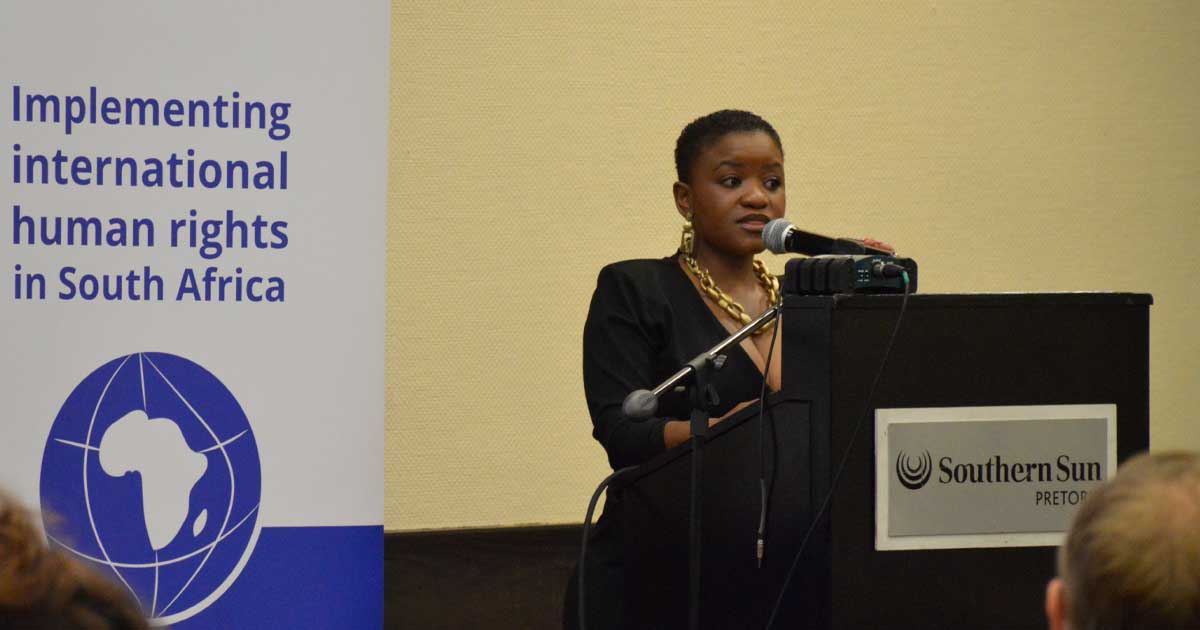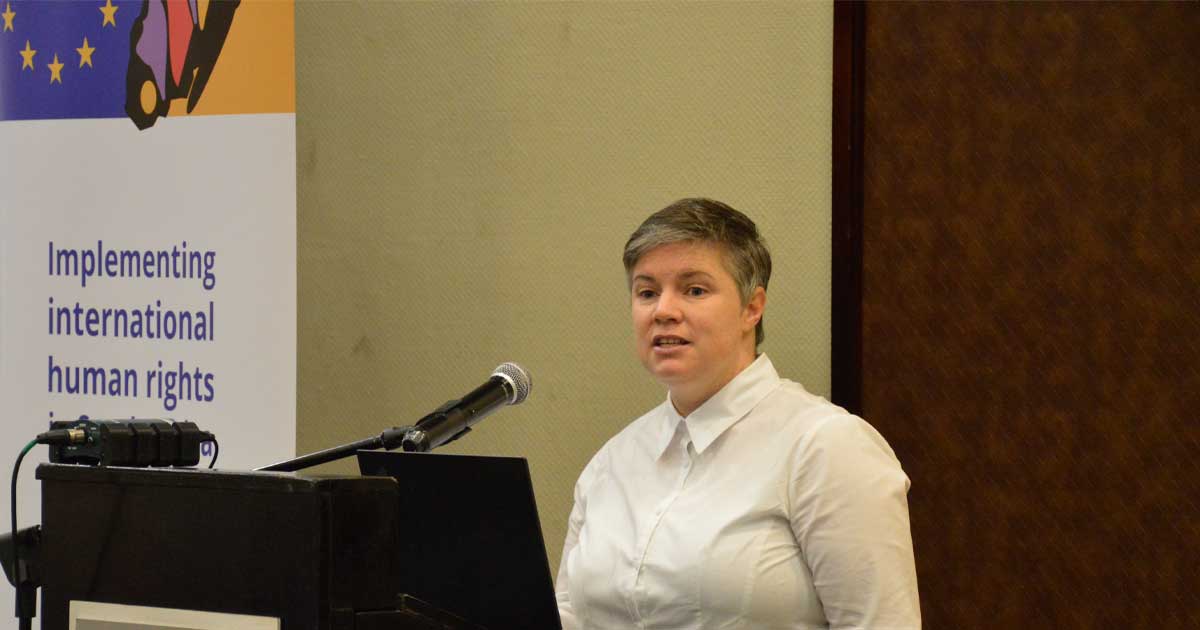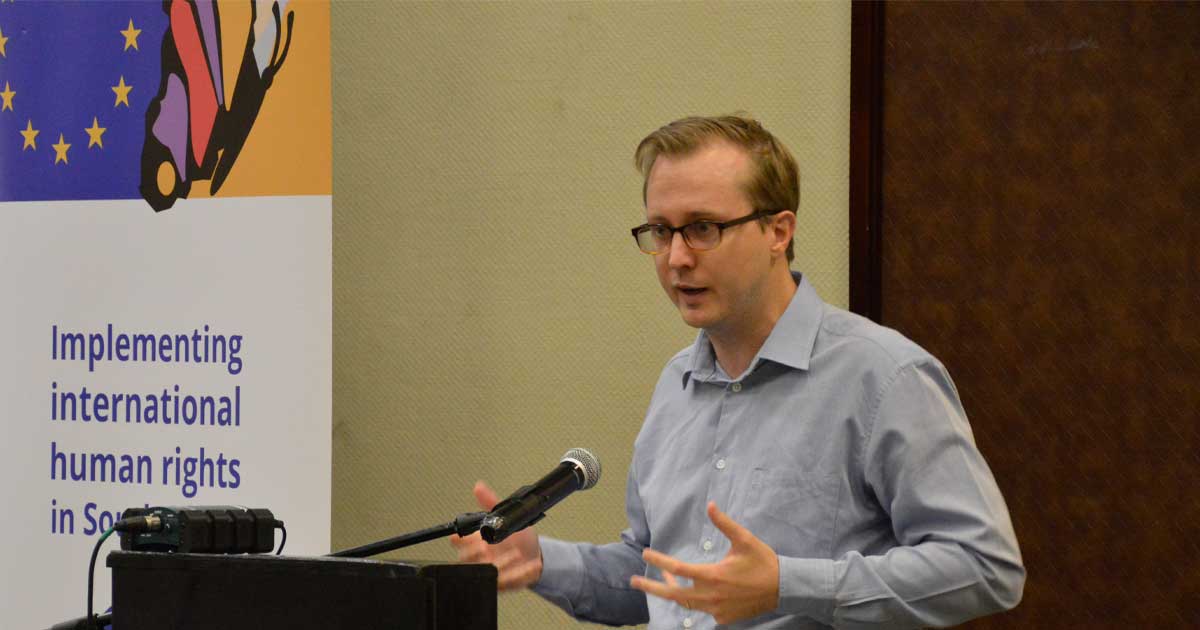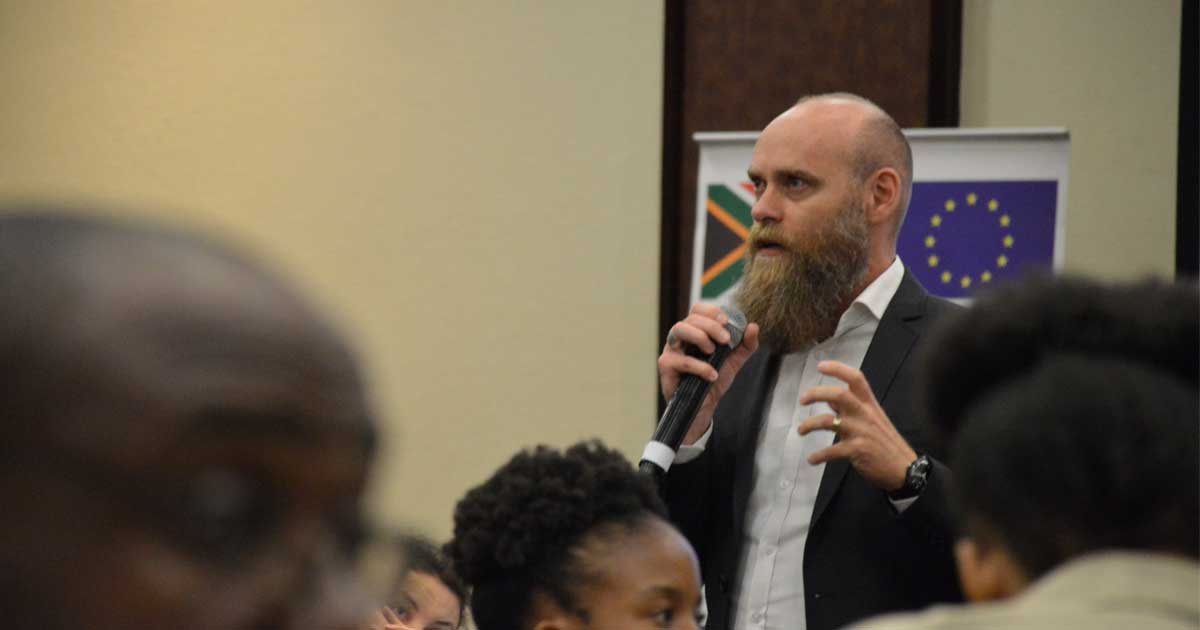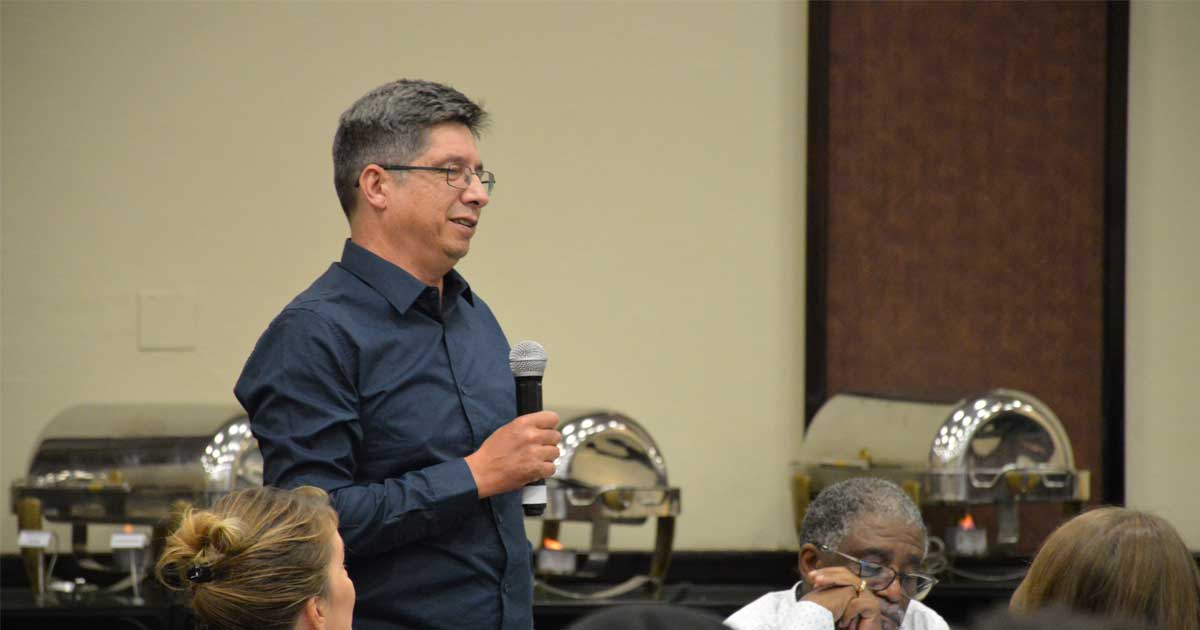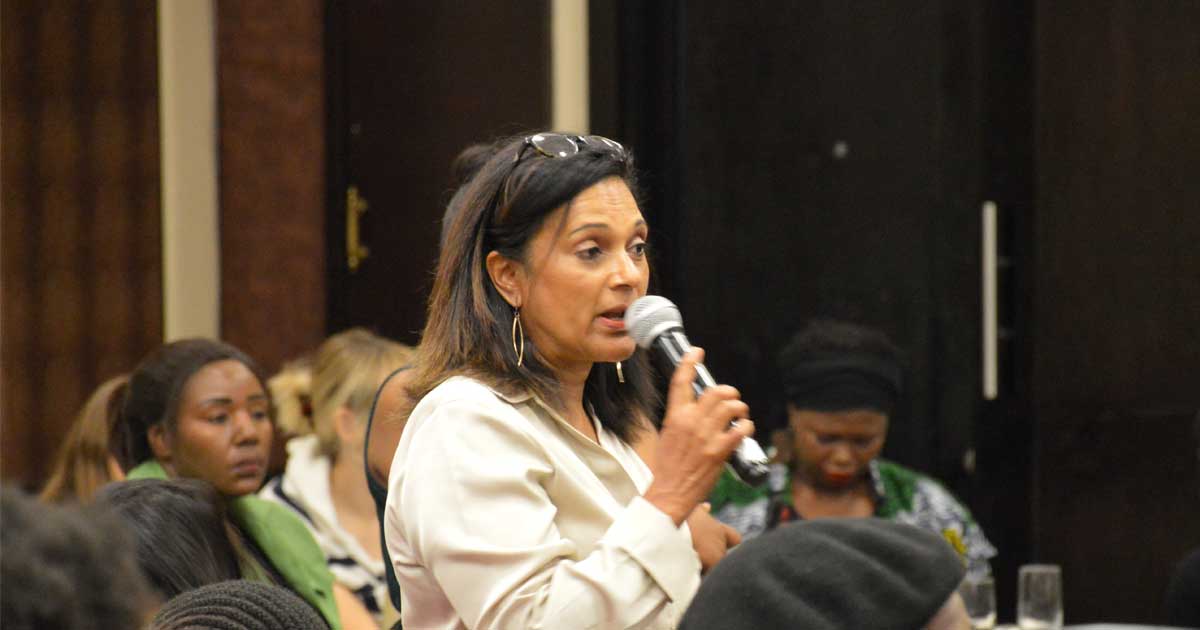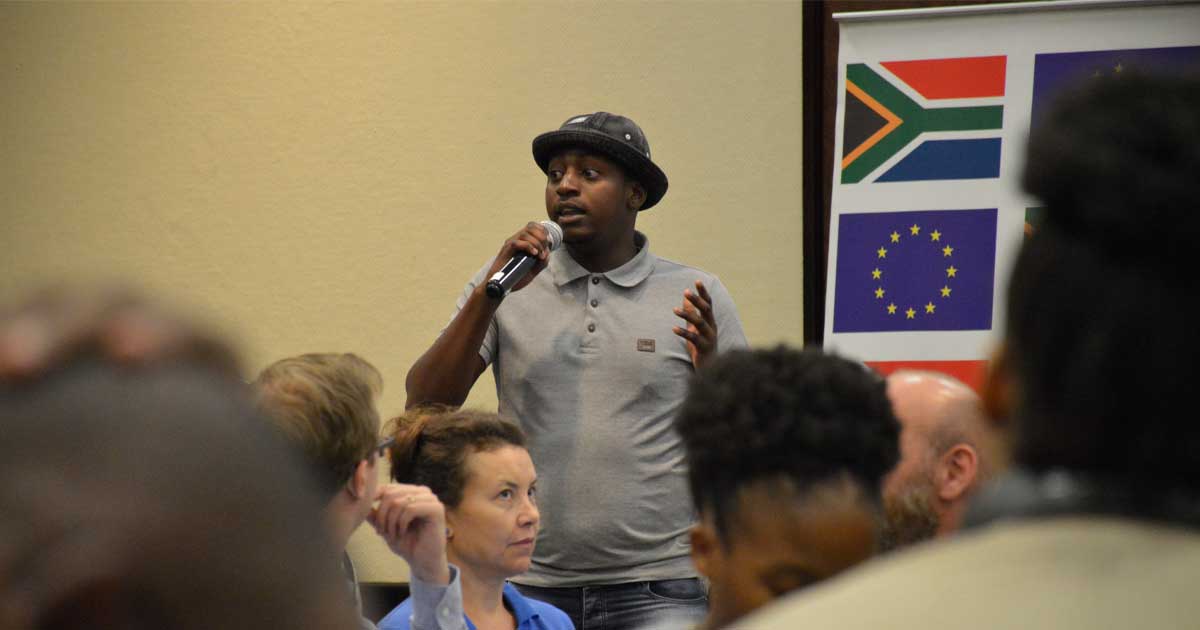On 22 March 2023, the Centre for Human Rights Democracy and Civic Engagement Unit convened a Civil Society Organisations (CSOs) dialogue in partnership with the European Union that interrogated the state of human rights in South. The event aimed to create a space for an exchange of ideas among members of civil society, to identify the main challenges and possible priority actions for civil society - particularly in respect of migration, socio-economic, LGBTQ+ and persons with disabilities rights.
Mr Thomas Tiedemann, Team Leader Governance & Social Sectors at the European Union Delegation gave opening remarks and underscored the EU’s commitment to promote and advance human rights, good governance and democracy in Africa and globally. Professor Frans Viljoen, the Director of the Centre for Human Rights stated the importance of the discussion in cultivating a sense of solidarity given the litany of human rights challenges that the nation is facing and the need to share ideas and solutions towards resolving some of the issues that persist. Ms Bonolo Makgale, the Programme Manager of the Democracy and Civic Engagement Unit contextualised the meeting by making the connection between the state of democracy in South African and socio-economic rights. She noted that while reports from Freedom House have declared South Africa as one of the most democratic states in Africa, the quality of democracy as experienced by ordinary South Africans tells a different story. South Africans continue to grapple with this phenomenon of questioning democratic legitimacy because of the profound democratic disillusionment and political dissatisfaction.
The main speakers of the event were Sally Gandar, Human Rights Officer, Regional Office for Southern Africa in the Office of the United Nations High Commissioner for Human Rights and Dr Jason Brickhill, Director of Litigation at the Socio-Economic Rights Institute of South Africa. Sally Gandar introduced the theme of migrant workers’ rights. Sally reminded the audience of the importance of 21 March 1960 - particularly its relation to migrant workers history in South Africa. Sally highlighted that all persons in South Africa share a certain set of basic human rights under international law, regardless of their immigration status. Sally reflected on issues affecting migrants rights such as xenophobia, the vulnerability that comes with statelessness and asylum seeking. She underscored the role that Civil Society Organisations can play collectively and individually to protect the rights of the most vulnerable including migrants. Sally pointed out that a fundamental concept in the South African Bill of Rights is the right to human dignity. The importance of this right in the country’s context flows out of its particular with the apartheid state - which often made use of migrant workers in the mining sector. Sally used the analogy of the Bill of Rights and Constitution being seen as a bridge to issues surrounding migrant rights and the importance of closing the implementation gap between what is provided for on paper and the lived experiences of migrants.
Dr Brickhill highlighted how inequality has led to varying litigation on matters regarding socio-economic rights. Some of these matters are the anti-land versus homelessness tensions, access to education facilities and the economic position of vulnerable groups in South Africa. He remarked on a reimagined society where the sentiments and structures that are against vulnerable groups such as the anti-land invasion units in South Africa are redefined to put vulnerable people in a better place such as the development of anti-homeless initiatives.
Some key points of discussion raised by CSOs in the audience included among others, the importance of looking at the state of democracy and its effects on socio-economic rights; the role of civil society in an increasingly polarised world; the importance of the Constitution in protecting and advocating for human rights; the state of health rights especially for women and community-based activism and the localisation of the human rights agenda.
For more information, please contact:

Tel: +27 (0) 12 420 4199
Fax: +27 (0) 86 580 5743
bonolo.makgale@up.ac.za

Fax: +27 (0) 86 580 5743
tariro.sekeramayi@up.ac.za
